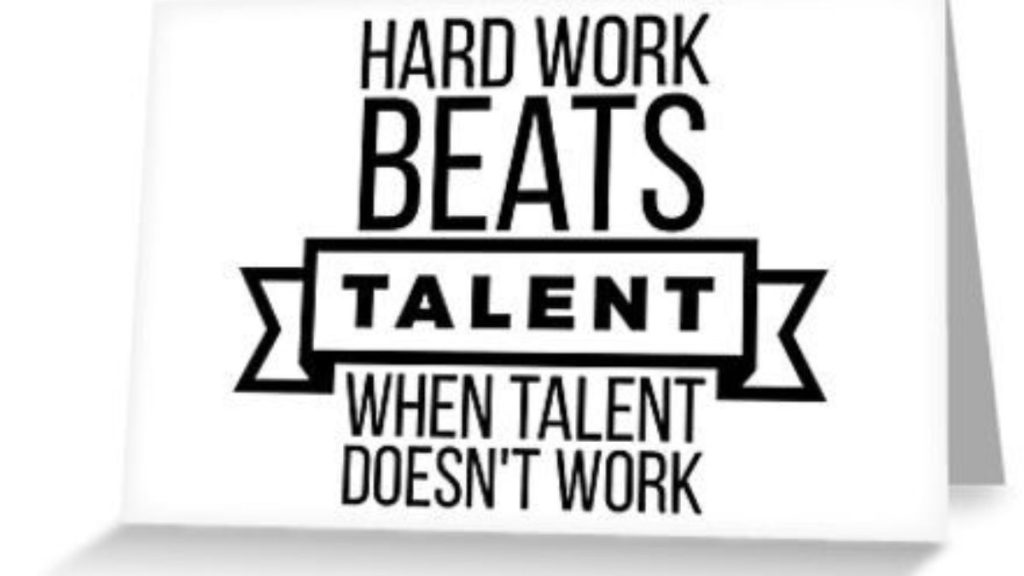Success talks have been fueled for decades by the age-old talent vs. hard work debate. The following comment sums up both sides of the argument: “Hard work beats talent quote when talent doesn’t work hard.” Here, we delve deeply into the history of this well-known saying, analyze its meaning, and provide examples from real life to demonstrate its applicability. Come with us as we explore the psychology of success and the tangled web we weave between natural ability and hard work.
The Significance of the Quote
The Origins of the Quote
This adage has its roots in a wide range of disciplines, from athletics and commerce to philosophy and self-improvement. We investigate the origins of this wise proverb.
The Enduring Appeal
The timeless appeal of this phrase is one of its most striking features. We talk about the reasons why individuals from all walks of life find it so compelling.
Talent vs. Hard Work: The Age-Old Debate
The Role of Talent
Talent, which can be thought of as an intrinsic skill, is essential to succeeding. The value and bounds of talent are explored.
The Value of Hard Work
Accomplishments are the result of hard labor, which is defined by devotion, perseverance, and effort. We stress the value of hard work and dedication.
The Stories That Validate the Quote
Michael Jordan: A Basketball Legend
Legendary basketball player Michael Jordan’s life illustrates the words of the quotation. We look at how his dogged perseverance paid off and brought him to success.
Thomas Edison: The Inventor Extraordinaire
The life of Thomas Edison is a perfect example of how perseverance, experimentation, and hard effort can yield revolutionary discoveries.
J.K. Rowling: The Literary Phenomenon
J.K. Rowling, the acclaimed writer of the Harry Potter books, had several failures before finding success. The lessons we can learn from her perseverance are invaluable.
The Intersection of Talent and Hard Work
The Ideal Scenario
Talent and effort meeting each other at their sweet spot is where achievement resides. We talk about the importance of both inherent talent and hard work in reaching one’s goals.
Balancing Act
It might be difficult to strike a balance between natural ability and dedicated effort. We shed light on how to achieve this fine balance.
The Psychology Behind Success
Growth Mindset vs. Fixed Mindset
Mindset plays a role in the psychology of achievement. The effects of both a “growth mindset” and a “fixed mindset” on success are discussed.
The Power of Grit
The “grit” idea, developed by Angela Duckworth, highlights the value of dedication and enthusiasm in reaching one’s long-term objectives.
Debunking Myths
Talent Alone Is Enough
We dispel the notion that natural ability is sufficient for success and examine why talent alone is rarely sufficient.
Hard Work Guarantees Success
In a similar vein, we debunk the idea that sheer effort will lead to success and explore the nuanced process of reaching one’s objectives.
Conclusion
Finally, the adage “Hard work beats talent when talent doesn’t work hard” serves as a gentle reminder that success is the result of a nuanced dance between intrinsic skills and dogged effort. It inspires people to make the most of their abilities while also valuing and putting in the effort necessary to reach one’s goals in life.
FAQs
What does the quote “Hard work beats talent when talent doesn’t work hard” mean?
When talented people don’t put in the time and effort, hard work can succeed where talent couldn’t.
Who coined the famous quote about hard work and talent?
It’s unclear who first said it, but the saying has been widely used in sports, business, and self-help.
Can talent compensate for a lack of hard work?
Talent may not be enough to make up for a lack of effort. Talent and hard work are usually required for success.
Is it possible for someone to become successful with just hard work and no talent?
Without a doubt, anyone with enough drive and focus can succeed in life, regardless of their natural abilities.
How can individuals strike a balance between talent and hard work?
Finding the sweet spot between natural ability and focused effort requires an assessment of one’s strengths, the establishment of specific goals, and the application of persistent effort over time.







